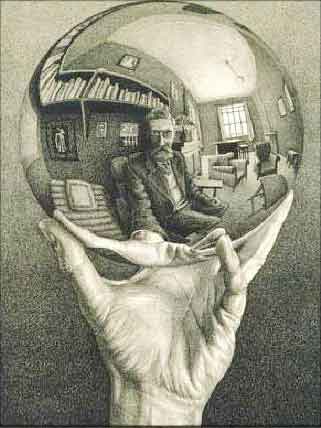
I am teaching an Honors Seminar entitled "Pets, Partners or Pot-roast" this quarter. It is NOT solely about whether or not to eat meat, nor is it focused on animal rights; both of those topics are, however, part of the course. It is really a opportunity for us all to consider how we make decisions in a complex world, especially when we may make decisions whose outcomes conflict with one another (e.g., "Livestock=bad; leather jackets=good." Huh?).
One of our readings for this past week was in an article by CU professor Marc Bekoff*, entitled "Deep Ethology, Animal Rights, and the Great Ape/Animal Project: Resisting Speciesism and Expanding the Community of Equals"**. In the article he reports the hesitance of some researchers to name the animals with which they work; Jane Goodall, for example, was criticized by some colleagues for giving the chimps names rather than numbers. He then observes that many scientists keep pets (and name them), but those same scientists will not give animals of the same species names when they are in the lab. Animals at home are part of the family; animals in the lab are something else: "lab animals", and thus safe to experiment on.
This got me to thinking about how we use names, or other words, to distance ourselves from people (or other animals!) who are not like us. This is so obvious when we demonize an enemy, using very pejorative language (and/or overdone visual caricatures) to drive this point home. An easy example is the word "barbarian" -- a pejorative term used by the Greeks to describe anyone who didn't speak Greek (the non-Greeks' speech sounded like "bar-bar-bar-bar"). But the same "distancing" shows up in non-political ways as well, and in English. When we sit down at table we rarely refer to the piece of meat on our plates as "pig" or "cow" or "sheep" (unless it's a lamb, in which case we have a very different moral ambiguity going on -- as there is also with chickens/ducks or fish). No, most of us buy our "beef", "pork", or "mutton" out of a cold-chest at the supermarket, not even connecting our dinner with the animal who gave its all so that we might eat.
Don't misunderstand me! I'm still so un-reconstructed that I love that slab of hickory-cured pig, or that slice of cow muscle. On the other hand, I have lived on a farm, and have seen an animal go from hoof to table in a matter of hours. No, what I'm recognizing is how my words hurt. They hurt others, certainly. No-one likes to be described by a vulgar epithet. But my words can hurt me. I become desensitized to individuals by the words I use to describe them.
"Right speech" is one of the Eight Noble Truths of Buddhism. Gossip and "loose speech" are warned against in the wisdom traditions of every religious tradition I know. And now we, in the U.S., are being called upon to become more "civil" in our dealings with others-in our speech with others. And I fully agree. What I find on websites/blogs/Facebook, however, regardless of persuasion, is a lot of "othering" language. On the one hand, it doesn't seem in keeping with any notion of civility. But, on the other hand, it keeps the authors/speakers from realizing that there are real people at the other end of their categorizations. Just like cello-wrapped tenderloins help keep us from realizing that there were living animals who were bred and raised for the purpose of feeding us.
I've long felt that "category-lumping" speech does nothing but end conversation and increase resentment-words do hurt. But what I'm recognizing is that when I do it, I'm not only doing damage to the other, I'm hurting myself. Time to bite my tongue and see how that tastes and feels.
Blessings,
Gary



